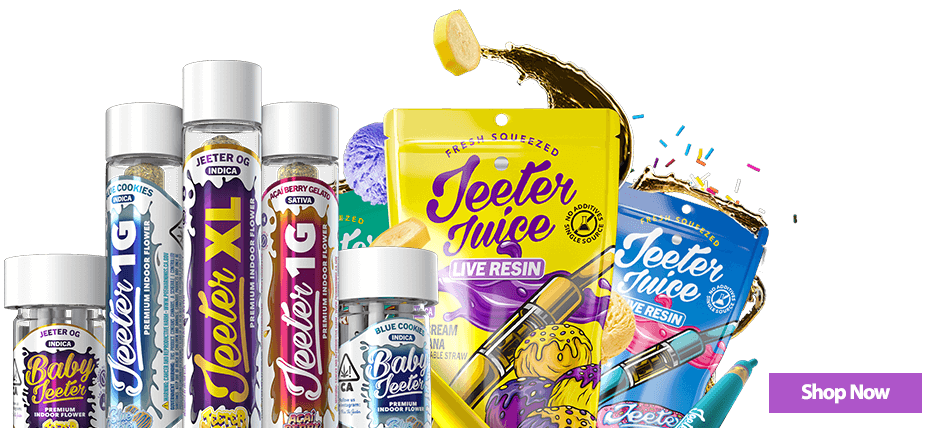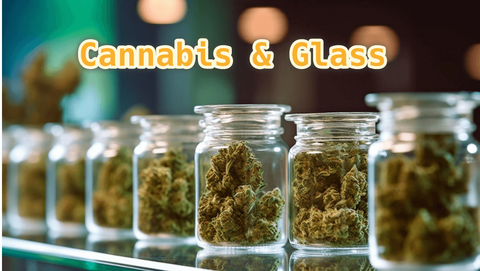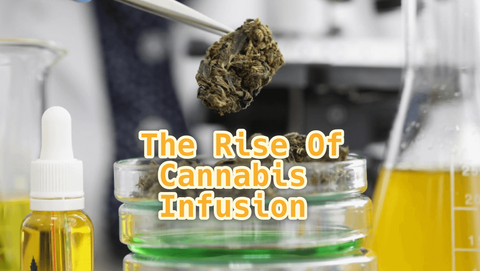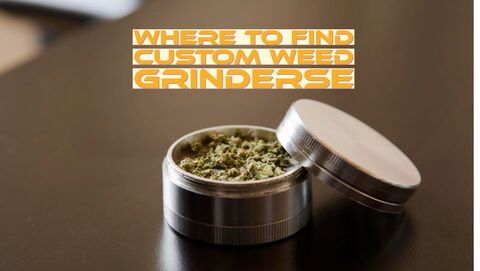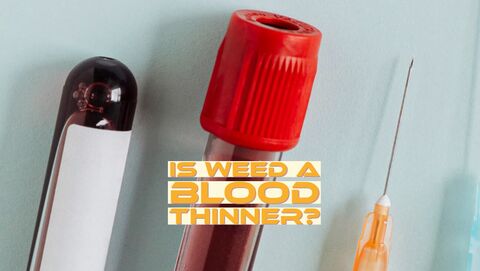Latest Blog Posts
Top rated
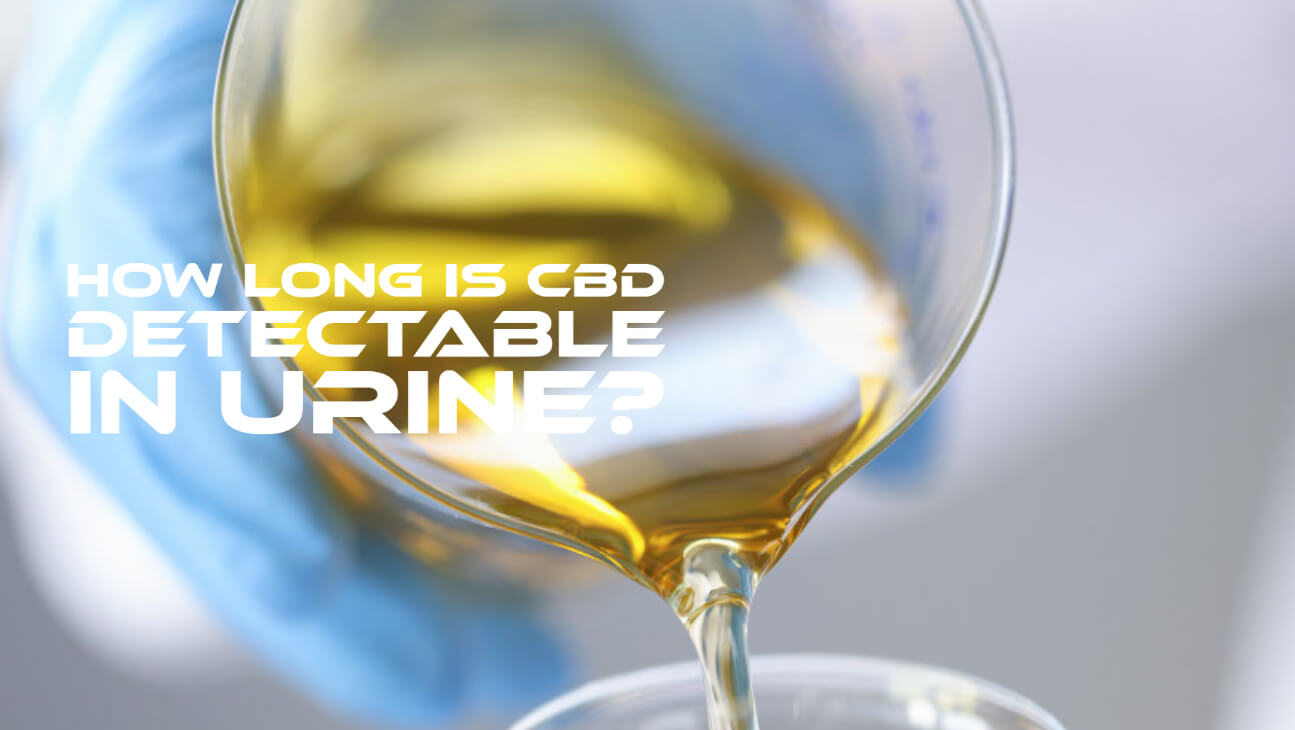
How Long Is CBD Detectable In Urine?
Even though CBD-based products have a reputation for being healthy, they may lead you to fail a drug test if found in your urine sample during a pre-employment screening.
Cannabidiol, also known as CBD, is a chemical found in marijuana that does not cause users to feel high. CBD treats various conditions, including chronic pain, anxiety, and trouble sleeping or staying asleep. Cannabidiol oil extract is available in multiple forms, including sublingual drops, vaporizer oils, and even multicolored jelly beans.
This extract may be found virtually anywhere. They are also sold in stores located all across the country, in addition to being available online. Despite the good connotations associated with these products, there is still the possibility that they may cause problems if they are detected in a drug test.
One Of Almost Two Hundred Cannabinoids Discovered In Cannabis
Cannabidiol, or CBD, is one of almost two hundred cannabinoids discovered in cannabis. The component with psychoactive qualities and intoxicating effects, tetrahydrocannabinol (THC), is the most prevalent one in cannabis, although CBD is the second most common cannabinoid.
Both Cannabis Indica and Cannabis Sativa are types of cannabis plants. Hemp, however, is only found in the Cannabis Sativa species, but marijuana and CBD can be derived from both. Growers risk criminal punishment if their cannabis has more than 0.3% THC (marijuana's psychoactive oil) by weight. Clothing, packaging, biofuels, construction materials, and paper are some eco-friendly items that may be made from hemp.
CBD derived from hemp is allowed on a federal level because it contains less than 0.3% THC, yet, it is still banned in several states. However, CBD products produced from hemp are allowed in some states despite being against the law at the federal level.
CBD, in contrast to THC, is not psychoactive and does not lead to feelings of euphoria. The World Health Organization reports that there is no evidence that it can lead to addiction, and there is also no evidence linking it to any significant negative health impacts.
Instead, CBD has been linked to easing symptoms of epilepsy, anxiety, inflammation, sleeplessness, and pain, among other diseases. Although it is hoped that the number of research will rise now that the law distinguishes cannabis from marijuana, the lack of high-quality studies to back up these assertions is a legacy of the law's previous treatment of cannabis.
Ability To Ease Suffering
Cannabidiol, or CBD, has been shown to have anti-inflammatory properties and the capacity to reduce pain by acting on the endocannabinoid and pain-sensing systems in animal studies.
.jpg?1669143418864)
Unfortunately, very few human studies have looked into using CBD alone to treat pain; most of these studies have employed a combination of CBD and THC. CBD and THC combinations are used in the majority of pain treatment trials. Patients with multiple sclerosis and cancer who do not respond well to optimal opioid treatment may benefit from a combination of THC and CBD in an equal ratio.
Those with non-cancer pain reported more significant improvements in their quality of life after CBD treatment, according to an observational study. In contrast, patients with cancer-related pain or neurological symptoms did not.
Several Studies On CBD
CBD and THC were combined in a case series of 47 adults with multiple sclerosis, and the patients reported significant reductions in pain and improvements in their gait and muscular spasms.

Studies conducted on animals have indicated that CBD has a beneficial impact on the levels of the neurotransmitter serotonin in the brain. It is believed that low levels of serotonin contribute to both mood and pain in the body.
CBD has been demonstrated in other research to have anti-inflammatory properties, which is one method by which it can alleviate pain. These studies have been conducted on both animals and humans. Because CBD may interact with other medications, including those used to treat heart disease and immunosuppressants, you should always contact your physician before taking CBD.
Do You Feel More Energized After Taking CBD Oil?
As a natural dietary supplement, CBD is quickly gaining in popularity, yet, some individuals are curious about whether or not CBD would show up on a drug test. A range of professions, such as those in law enforcement and athletics, may be subject to mandatory drug testing for various reasons.
Pure CBD oil should not appear in a drug test because the test is often looking for a certain quantity of THC, and CBD only contains trace amounts of the psychoactive component of cannabis, known as THC. However, CBD tests do exist, and despite the low likelihood that CBD may result in a false positive, it is essential to have a solid understanding of how the compound is flushed out of the body.
To begin, it is essential to have a firm grasp of the fact that CBD oil is not a psychotropic drug. There is a degree of misunderstanding regarding this chemical due to its close connection to marijuana, which is also referred to as weed. CBD and THC are two of more than one hundred different cannabinoid chemicals that are found within the cannabis plant.
THC, also known as tetrahydrocannabinol, is the component of cannabis that is responsible for the psychoactive effects, in contrast to CBD. In addition, during the manufacturing process, farmers cultivate a strain of the cannabis plant with a lower percentage of THC than the marijuana strain. This strain is used to produce hemp.
To Comply With Local Laws, Most THC Is Removed From CBD Products
In order to comply with the laws of the area, the majority of the THC in the CBD product is eliminated during the extraction process. Any CBD product sold in the United States is required to have a THC content of less than 0.3%, which is below the threshold required to cause intoxication. In contrast, few businesses take it one step further and make sure that their products contain less than 0.0005% of THC, which is the equivalent of zero THC.
It is not an easy process to estimate how long CBD remains in the urine because this time frame is dependent on several different factors.
Factors That Determine How Much CBD Is Stored In The Body
Consumption Of CBD On A Regular Basis
The amount of CBD that is taken into the body on a regular basis is a crucial aspect in deciding how long CBD will remain there. People who use CBD on a regular basis have a greater chance of keeping it in their bodies for a more extended period of time compared to those who only use CBD on an occasional basis.
.jpg?1669143716929)
Because CBD has the ability to stop the body from breaking down endocannabinoids, regular use of CBD can lead to an accumulation of both phytocannabinoids and endocannabinoids in the body. This is one of the reasons why CBD has this effect. Because of this, CBD has a greater chance of staying in your body for a more extended period of time.
The Quantity Of CBD That Was Consumed
The duration that CBD remains in your system is directly related to the amount of CBD that you take into your body. When you take a small quantity of CBD, the compound is more likely to be flushed out of your body in a short period of time. On the other hand, if you take a really high quantity of CBD, it may stay in your body for a longer period of time. This is due to the fact that your body needs to absorb and metabolize CBD in order to get rid of it before it can.
If you consume more CBD than what your body requires, the cannabinoid may also remain in your body for a longer period of time.
It is possible for "regular" doses to be eliminated from the body much more quickly than "megadoses," which are defined as doses of 100 milligrams or more. On the other side, these bigger doses provide benefits for your health in the long run as well. In a nutshell, the more CBD you take, the longer its effects will linger in your body after it has been absorbed.
Which Kind Of CBD Do You Consume?
The length of time that CBD remains in your body after use is influenced by the specific CBD product that you use.
When you ingest CBD, the compound travels through your digestive tract and into your bloodstream, where it begins to interact with your endocannabinoid system (ECS). This system is what's responsible for keeping your body in a state of equilibrium, often known as balance. This indicates that it influences aspects such as mood, appetite, and memory in addition to the feeling of pain.
The amount of time it takes for CBD to be absorbed and how quickly it may be used varies slightly between CBD tinctures, oils, vaporizers, capsules, edibles, and supplements. In general, things that are absorbed quickly, such as vaporizers and tinctures, are also removed from the body more quickly. Because CBD may be absorbed straight into the bloodstream through sublingual use as well as smoking, this is why it is becoming increasingly popular.
CBD oils also avoid the digestive system because they are absorbed directly via the lining of the mouth. The liver is the organ that is responsible for the initial metabolism of CBD oils after they have been consumed. As a result, you are able to take a lower dose while maintaining the same level of effectiveness.
The opposite of this is the case with CBD supplements that can be eaten. They are absorbed slowly, and it takes the liver a more extended period of time to eliminate them. One notable exception is topical medications, which, despite their rapid efficacy, are not taken into the body's circulatory system (through the bloodstream).
The Way You Take The Substance
This case happens when CBD is taken in combination with another substance. To give one example, the rate at which CBD is metabolized and expelled from the body can be sped up if it is taken in conjunction with a nutritious supply of fat, such as MCT oil.
When combined with other metabolic stimulants like coffee, cannabidiol (CBD) elimination may also be slightly accelerated; however, this hypothesis has to be tested further before being accepted as fact.
Another Essential Point
The duration that CBD remains in your system after ingestion is also affected by a number of other factors, including your metabolism. Metabolic processes involve the breakdown and elimination of ingested chemicals. This is an intracellular process.
If you have a fast metabolism and burn a lot of calories, CBD may be flushed out of your system quickly. On the other hand, if you have a slow metabolism, it may take more time for CBD to leave your system. This is because the chemical in question must be taken in and digested by the body over a longer time frame before this effect can be observed.
Your Physical Structure: Personal Factors
The level of body fat you have is another factor that determines how long CBD stays in your system. Because CBD is kept in fat cells, this is the result. CBD levels in the bodies of individuals who have a larger percentage of body fat tend to remain higher for a more extended period of time compared to those of individuals whose body fat percentage is lower.
%20(1).jpg?1669143850453)
Additionally, there are a variety of personal factors that can have an impact on the amount of CBD that is stored in the body. These aspects include one's age, size, gender, and overall state of health.
What Kind Of A Urine Test Is Performed To Test For Cannabidiol (CBD)?
The fact that you are no longer experiencing the effects of CBD does not mean that the compound has been eliminated from your system. Urine tests are typically the method of choice in the workplace because alternative methods, such as blood testing, are unable to detect THC for an adequate amount of time. However, there has only been a little research done to determine how long CBD can be found in the urine.
A drug's half-life is the amount of time it takes for its concentration to decline to half of what it initially was. A single dose of CBD that was injected into five people in a trial that took place in 2016 had a half-life that ranged from 27 to 35 hours. These numbers demonstrate how long CBD stays circulating in the body.
In addition, an article was published in the same year describing a trial in which 15 individuals used a variety of different CBD products. All of the subjects had positive tests for CBD two hours after they had consumed it. However, only one of the subjects was retested after 24 hours, and the CBD was no longer detectable in their system.
CBD will remain in the body for a significantly longer period of time if the individual takes a bigger dose or makes frequent use of the substance. According to the findings of one study, strong doses of CBD can stay in the body for up to a week, while other detection methods can find traces of the compound for up to a month.
How Long Does It Take For Weeds To Leave The Body?
It is possible to have a better understanding of how the body reacts to cannabinoids by examining the length of time that marijuana remains in the body. Pot, often known as marijuana, has a considerable quantity of THC, which may typically be detected anywhere from 1 to 30 days after smoking it.
Three days after the last time someone used cannabis, even a single amount of THC can be found in their urine. On the other hand, if a typical amount of THC (anything from 10 mg to 100 mg) is consumed, a drug test will only be able to identify its presence in the body for a period of four days. It may take up to a month to detect higher concentrations of the substance.
THC metabolites could be discovered in the urine for up to 15 days after the last dose if the medication was used on a daily basis. However, this can be dependent on a variety of circumstances, such as the dosage and the individual's genetics.
Is There Any Way To Determine If CBD Has Been Consumed If A Drug Test Is Performed?
It is extremely unlikely that a drug test for CBD will provide a positive result in the vast majority of instances. If CBD showed up in a drug test, it would be of no assistance to law enforcement, and it wouldn't help athletes either. Despite the fact that CBD has vital benefits, it wouldn't help either group. There are drug tests for CBD available, but they may be rather pricey, and the vast majority of cannabis testing looks for THC.
- Tests Of The Blood
Blood tests are not typically performed in the workplace since THC is eliminated from the system very rapidly and might be completely gone in as little as a few hours in some people.
- Hair Analysis
Even after a haircut, the body hair on your body still maintains this information, which is relatively rare. Your hair stores a lot of information about you, which is why it is so distinctive. The examination utilizes a section of hair that is only one and a half centimeters long, which is similar to the most recent 90 days of your life. Because of this, most hair drug tests are able to identify THC for up to three months after the last time the substance was used.
- Saliva testing
The examination of saliva is another unusual procedure because THC may only be found in oral fluids after a period of 72 hours has passed since its consumption. If the individual takes a higher dose or utilizes THC on a daily basis, this time period could be extended.
How Long Is CBD Detected In Urine?
Urine may indeed be tested for the presence of CBD. On the other hand, urine tests that are intended solely for the detection of CBD are tough to come by and highly pricey. Due to the fact that CBD does not have any psychoactive effects, most employers do not feel the need to administer CBD drug tests. In the event that CBD is discovered in a urine test, you should anticipate that it will continue to be present in the urine for around two to four weeks. Be aware that reliable results on urine testing are not guaranteed.

These drug tests are significantly more accurate and are able to identify even the lowest levels of THC:
- Saliva testing
- Tests on the hair
- Blood tests
It is essential to ensure that the CBD product you buy comes from hemp, not marijuana, in order to prevent getting a false positive result when you get tested for THC.
On the contrary, CBD that is extracted from marijuana may have far greater THC concentrations. Certain CBD products generated from marijuana have amounts of THC that are higher than 20%. This amount is more than sufficient to register as positive on a drug test.
Is It Possible For CBD Oil To Provide A False Positive Test Result?
Although it is highly uncommon, there are a few different things that could create a false positive result when using CBD oil.
- Incorrect labeling of the product
Because there is relatively little legislation governing the use of CBD, there is a risk that products will be incorrectly promoted and labeled. It is regrettable that these issues have arisen for firms with a good reputation that assert their product is both safe and legal. Therefore, it is essential to conduct research and locate a brand that satisfies the requirements of the US law regarding pure CBD oil.
- Cross-contamination
When a company produces both THC and CBD products, there is an increased risk of cross-contamination during the manufacturing process, which is another reason for false positives.
How Long Does It Take For CBD To Stop Being Active In Your Body?
CBD has been shown to maintain its activity for at least a few hours. People frequently report feeling the effects of CBD for anywhere between three and six hours, depending on the sort of CBD product they use. For instance, specific individuals are sure that the effects of full-spectrum CBD last significantly longer than those of broad-spectrum CBD and vice versa.
On the other hand, neither of these claims is supported by any proof. Choose full-spectrum CBD products or CBD isolates if you are concerned about consuming even trace levels of THC. Full-spectrum CBD products contain the entire cannabinoid profile. Although the legal limit for THC content in full-spectrum CBD oils is 0.3%, these oils nevertheless have very trace amounts of psychoactive compounds.
Broad-spectrum CBD extract and CBD isolate nearly never contain any detectable amounts of THC. The term "isolate" refers to CBD that has been stripped of all other cannabinoids.
How Does CBD Leave Your System?
If you ingest 32 milligrams of CBD oil, your body will still contain 16 milligrams of it after a period of 24 hours. After waiting another 24 hours, there will be 8 milligrams left. This process continues until there is almost no measurable amount of the substance left in the body.
%20(1).jpg?1669144066213)
However, the metabolites that are produced during the processing of CBD can be kept for several weeks, despite the fact that CBD can leave the body in as little as a few days (depending on how much of it you have taken). Therefore, even if you stop consuming pure CBD molecules, your body will still contain the metabolites from the previous consumption of CBD.
Your body composition is another factor that goes towards this breakdown. For instance, if you take a full-spectrum CBD tincture that has one thousand milligrams, the CBD that you consume will be stored in the fat cells of your body (just like THC).
CBD will be stored in greater quantities in those who have a higher body mass index and who have a greater amount of fat. Because of this, the amount of time it takes for CBD to be broken down in the body is shortened.
As a general rule, it takes longer for the body to break down all of the CBD that is stored in the fat cells when the body has a higher total amount of fat.
What To Look Out For When Purchasing Pure CBD Oil?
Follow this top advice for purchasing CBD oil to help you avoid these problems while also ensuring that the CBD you purchase is both legal and suitable for your needs.
- Carry out some studies in order to identify a brand that you can rely on. Look for businesses that have had their product line certified by an outside organization. Read the reports from the laboratories.
- Pay attention to the amount of pure CBD oil that is contained in each product as well as the source of the oil.
- If you have the option, choose organic CBD because it has more benefits for both your body and the environment.
Is It Possible To Detect CBD With A Drug Test?
In principle, CBD should not show up on a test for drugs because it is not psychoactive. On the contrary, because the vast majority of CBD products are considered to be dietary supplements, safety and purity regulations do not apply to them. This indicates that tetrahydrocannabinol (THC) contamination of CBD can and does occur and that it can be identified in a drug test, depending on the threshold of the test, as well as the other criteria indicated below.
If the CBD oil that is being purchased is from marijuana as opposed to hemp, then there is a greater possibility of this happening. The law mandates that CBD derived from hemp must have a THC content of less than 0.3 percent, despite the fact that consistent daily usage of CBD in high dosages can lead to THC buildup.
Because CBD has effects that are more widespread, it also has a lower risk of being contaminated with THC. This is due to the fact that full-spectrum CBD, in contrast to broad-spectrum CBD, contains all of the components that are found naturally in the plant that it was extracted from, but broad-spectrum CBD does not contain any THC at all. In addition to being pure CBD, CBD isolate is typically made from hemp; thus, it should not include any trace amounts of THC.
CBD should be avoided at all costs if you are concerned about passing a drug test. You are required to report it to the appropriate authorities if the laws of your state allow you to consume it (but it may still be contaminated with THC unless it comes from a reputable supplier who guarantees that it is free of THC).
To Get A Positive Result On A Drug Test, How Much THC Must Be Present?
Since the amount of THC that must be present in order for a drug test to return a positive result is dependent on a number of factors relating to both the substance being tested for and the person being tested, as well as the cut-off value of the test, it is difficult to determine how much THC must be present in order for the test to return a positive result.
There are a variety of factors that can affect how long marijuana (THC) and its metabolites are detectable in urine or other biological tests. Some of these factors are given below.
- Frequency of marijuana use (the half-life of THC is 1.3 days for infrequent marijuana use and 5 to 13 days for frequent marijuana use).
- Existence of interactions with several other drugs used at the same time
- Consumption levels, in addition to the several administration routes.
- The very end of its use.
A variety of the patient's features, such as body weight, urine pH, and concentration, as well as other medical illnesses, such as renal or liver illness, have the ability to play a role in deciding the outcome. One of the most important of these factors is the patient's age.
.jpg?1669144145949)
An approximation of the amount of time it takes for the presence of marijuana (THC) to become detected in urine:
- Three days for a single use
- 5–7 days per week for moderate use (four times per week)
- After 10–15 days of continuous use (using it every day).
- Heavy use on a consistent basis for at least a month and a half.
The maximum amount of marijuana metabolites that the federal government will allow employees to have in their systems during immunoassay screening tests is 50 nanograms per milliliter (one ng is one billionth of a gram). The confirmatory test measures a metabolite of marijuana known as delta-9-tetrahydrocannabinol-9-carboxylic acid to evaluate whether or not a result is positive.
The threshold for a positive result is greater than 15 ng/ml, and a positive effect requires a value that high. Because this value is sensitive to change based on the circumstances stated above, it is crucial to highlight that it is not meant to serve as a reliable signal of the absence of drug use. This is because the value is subject to fluctuation.
Additional Information Regarding Drug Testing In The Workplace
In spite of the fact that urine drug tests are used on such a widespread scale, there appears to be inconsistency in the interpretation of test results. It comes as a bit of a surprise, considering the potentially severe repercussions of a false positive result (such as the loss of employment or imprisonment), but this is the case. Be mindful of this fact, though, because it may imply that something that is regarded as a positive (or negative) result in certain circumstances is considered a negative (or positive) effect in other cases. What must be taken into consideration about most drug tests?
.jpg?1669144189336)
Meconium, urine, hair, blood, saliva, perspiration, toenails, and fingernails are only some of the biological samples that can be tested for the presence of drugs. Urine testing is the most frequent method for detecting drugs in the workplace. This is due to the fact that it does not need any intrusive procedures, and it is simple to collect samples.
The parent drug, at least one of its metabolites, or both can be identified through the testing process for drugs. It is typical for the concentration of medications in urine to be higher than that found in blood, and their effects also tend to stay far longer. How long does CBD stay here? It certainly has to stay in your system longer.
Urine testing for drugs often falls into one of two categories: screening and confirmatory. Screening immunoassays can be performed at the point of care or in a laboratory. They enable numerous tests to be carried out at the same time, with relatively quick findings and an initial evaluation of whether or not medicines are present.
There are three primary varieties, and each one of them relies on antibodies to identify the presence of particular drug metabolites or categories of pharmaceuticals. Unfortunately, this might result in the detection of compounds that have identical qualities, which is known as a false positive.
Specific point-of-care imaging tests are favored by clinics that treat patients for pain management, as well as by clinicians who treat patients who have illnesses related to the usage of psychoactive substances. However, the results are only sometimes simple to comprehend (for example, they may be blurry or ambiguous in color), which might lead to interpretations that are based on personal preference.
These tests should only be considered to be preliminary, and, as is the case with any screening test, they should be followed by a laboratory test to validate the results. Despite the fact that this is the recommended practice, it is only sometimes followed.
Tests That Are More Accurate Than Screening Tests
Administered with the use of gas chromatography and/or mass spectrometry, confirmatory tests (also known as drug abuse panel tests) identify specific molecular structures and determine the concentration of the drug or substance in a sample.
Compared to screening tests, these ones are more reliable; nonetheless, they are also more time-consuming and costly. Therefore, they are only carried out when absolutely necessary, such as when there is a need to determine the truth in a case involving the law, the classroom, investigations, or the workplace. Since they pick up on cannabinoids rather than metabolites, they should be able to tell the difference between cannabidiol (CBD) and tetrahydrocannabinol (THC).
In most cases, the predetermined cut-offs are more stringent than those employed in hospitals and other medical facilities. The goal of this practice is to lessen the frequency of false-positive results on drug tests, especially those given at work.
The Bottom Line
It is possible to determine whether or not CBD is present in urine by testing. Urine tests that are designed exclusively for the purpose of detecting CBD are notoriously tricky to come by and quite expensive. Because CBD does not have any psychoactive effects, the vast majority of companies do not believe that it is necessary to conduct CBD drug tests on their employees. In the event that CBD is identified through a urine test, you should plan for the compound to continue to be present in the urine for somewhere between two and four weeks in the event that it was discovered. Be warned that there is no assurance that the results of urine tests will be reliable.
These drug tests are substantially more accurate than previous ones, and they are able to detect even trace amounts of THC:
- Saliva testing
- Examinations of the hair
- Blood tests
If you want to avoid obtaining a false positive result when you are tested for THC, it is crucial to be sure that the CBD product you buy originates from hemp, not marijuana.
On the other hand, CBD that is taken from marijuana could have far higher THC concentrations than CBD that is not extracted from marijuana. There are certain CBD products derived from marijuana that include THC concentrations that are higher than 20%. This quantity is far more than adequate to provide a positive result on a drug test.
Disclaimer: This material is for informational purposes only and should not be relied on for legal, medical, financial, or any other form of professional advice.

